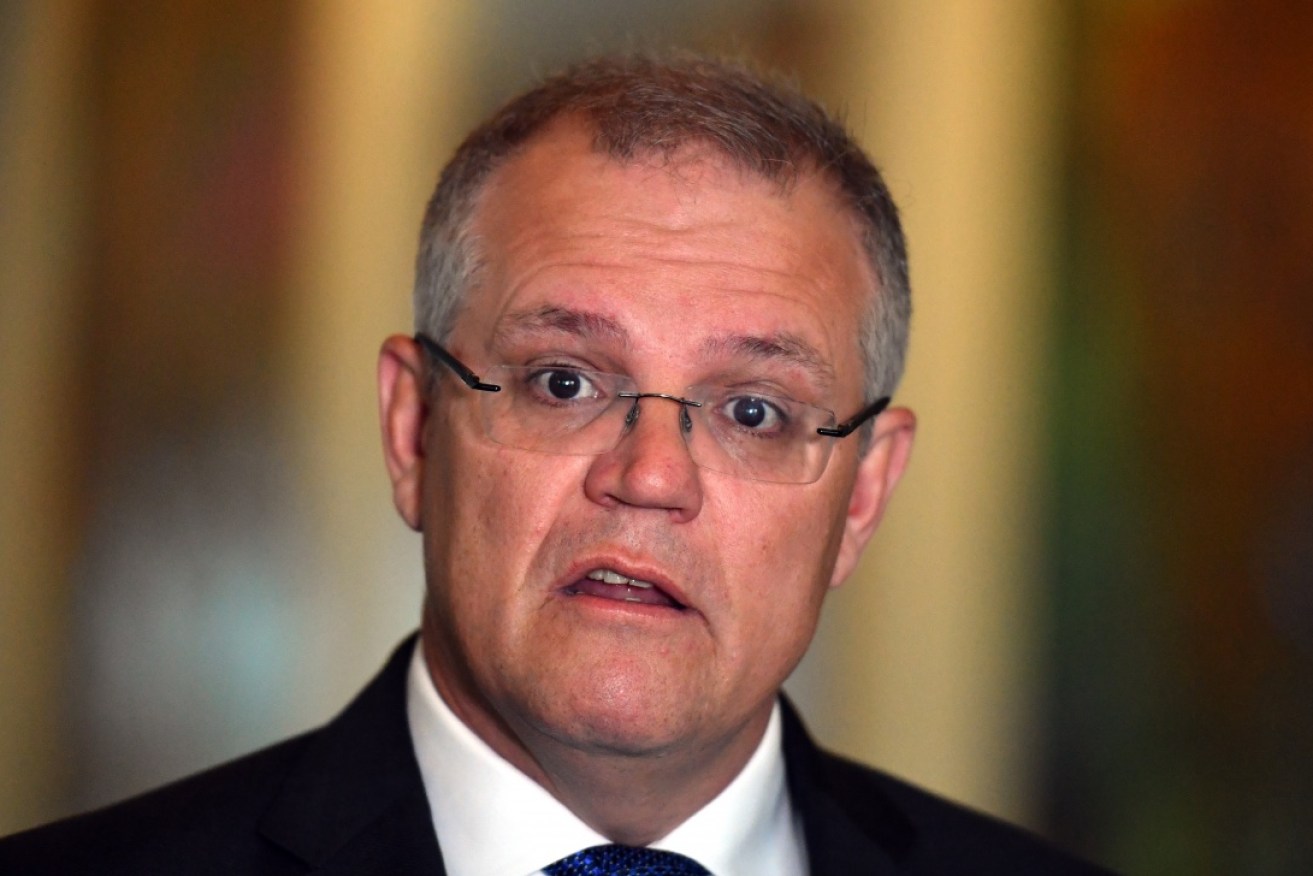Morrison’s ‘cut corporate tax’ mantra shows his political antenna doesn’t work


Scott Morrison wants to slash company tax to 25 per cent. Photo: AAP
It’s a mystery why the Turnbull government is investing so much of its scant political capital on reducing the tax rate for big business.
If there is a case for a lower corporate tax rate, Treasurer Scott Morrison has been spectacularly unsuccessful in prosecuting it.
Mr Morrison has attempted to up the ante by warning that US President Donald Trump’s generous corporate tax cuts – reducing the federal rate from 35 per cent to 21 per cent – make Australia a markedly less attractive destination for business investment.
This is a bogus proposition. No wonder Mr Morrison’s corporate tax agenda has failed to excite the imagination of either economists or sceptical voters, let alone immovable crossbench senators.
The inconvenient reality is that Australia’s “uncompetitive” corporate tax rate is mostly honoured in the breach at the big end of town, and everybody knows it.
Even setting aside the fact that corporate tax accountants and lawyers can divine loopholes from a blank sheet of paper, the idea that a tax cut in the US, even a substantial one, makes Australia instantly less attractive is ludicrous.
The US federal tax system, ostensibly simplified by Mr Trump, is muddied by complex and hugely varying state tax regimes. But even if the US was overnight transformed into a taxation nirvana, what decision to invest in the US would not be coloured by the social, political and economic risks associated with Mr Trump’s unhinged presidency?
Mr Morrison portrays himself as a champion of the Australian economy but he sells it considerably short when he implies that our future turns on a 25 per cent corporate tax rate.
Australia offers arguably unparalleled political stability, a strong legal system and rule of law, a highly educated and skilled workforce, sound infrastructure (the NBN notwithstanding), lucrative markets and natural resources, and a unique gateway to the Asian region – these are the considerations that swing investment decisions.
The Turnbull government last year secured crossbench support to reduce the company tax rate from 30 per cent to 25 per cent for businesses with an annual turnover of up to $50 million. The government wants a 25 per cent tax rate for all businesses but has failed to win Senate support.
Mr Morrison refuses to take no for an answer. He is convinced that the strength of his case, if not his tenacity, can bend either Labor or the crossbenchers to his will. It will not be the first time that his political antenna has been found wanting.
Insisting that an essentially immaterial tax cut will stimulate the economy is wishful thinking disguised as considered policy.
Mr Morrison can rail against economically illiterate crossbench senators and a bloody-minded opposition, but there is a reason his policy for a more generous tax rate for big business has been so coolly received. If it looks like a turkey, walks like a turkey and gobbles like a turkey … you get the drift.
Unable to sustain a case for tax cuts, Mr Morrison has dangled the vague promise of personal tax cuts in the hope of generating support for corporate tax cuts.
He has also sought succour from the International Monetary Fund (IMF) which this week predictably welcomed the Trump tax cuts. It argues that the cuts will drive global growth of 3.9 per cent this year, up from 3.7 per cent in 2017, and has urged other nations to follow suit with tax cuts of their own if they wish to reap the spoils of the promised economic bonanza.
“That’s why this government will continue to seek support for [corporate tax cuts]. We want Australians to be able to seize the opportunities ahead, rather than be left behind,” Mr Morrison coos … or gobbles, depending on your point of view.
With all due respect to the IMF, the idea that 12 months of the chaotic Trump administration has turned the global economy around is too absurd to contemplate.
But Mr Morrison has another problem. He insists that the key to Australia’s economic turnaround is a 25 per cent tax rate, yet the Turnbull government has made much of Australia’s record as a world economic marvel.
Last year, Australia achieved the longest run of uninterrupted economic growth in the developed world – 26 years. This month, despite the Treasurer’s insistence that Australia needs lower corporate taxes to create jobs, Prime Minister Malcolm Turnbull celebrated the “equal-longest run of consecutive monthly job increases since 1978”.
Amid this economic “good news”, Australians are grappling with rising prices, disappearing entry-level jobs for young job seekers and the casualisation of work, a growing disparity between the rich and poor, crushing household debt and stagnant wages growth.
It’s no wonder Mr Morrison’s relentless calls for tax cuts for the big end of town are failing to resonate with beleaguered voters.
Mr Morrison would do well to put his plans for corporate tax cuts in the bottom drawer and concentrate on delivering a budget that will improve the lives of Australians who have been doing it tough since the global financial crisis of 2008. They have waited long enough.
Leo D’Angelo Fisher is a former associate editor and columnist with BRW and columnist for the Australian Financial Review. He was also a senior writer at The Bulletin magazine.








